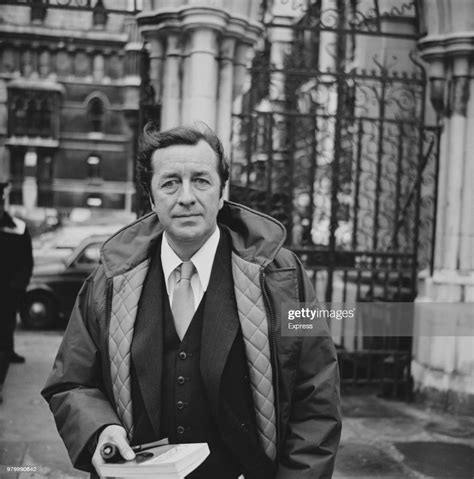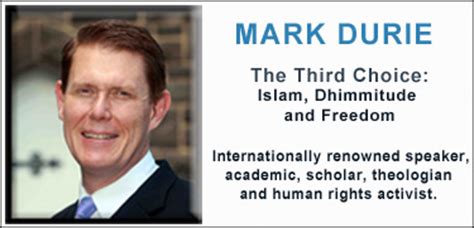A Quote by John F. Kennedy
For in a government of laws and not of men, no man, however prominent or powerful, and no mob however unruly or boisterous, is entitled to defy a court of law. If this country should ever reach the point where any man or group of men by force or threat of force could long defy the commands of our court and our Constitution, then no law would stand free from doubt, no judge would be sure of his writ, and no citizen would be safe from his neighbors.
Related Quotes
If, by one determined purpose, the hearts of all the graduates, the officials, and the men of China were united, our country would rest upon a great rock, and we could defy the world to overthrow us. To attain this object, it is necessary first that every man should fulfill his duty to his parents and elders. The country would then be at peace.
Government force is derived from the sum of the physical force each citizen could exert which by one citizen himself would be ineffective, but when summed from the force of all the area's citizens indeed composes a power no citizen or group can withstand. That force is then rightly but justly to be used against those who violate the foundation pillars of freedom.
I feel that at this point in our country's history, it is important that we not reverse marriage equality, that we not reverse Roe v. Wade, that we stand up against Citizens United, we stand up for the rights of people in the workplace, that we stand up and basically say: The Supreme Court should represent all of us. That's how I see the court, and the kind of people that I would be looking to nominate to the court would be in the great tradition of standing up to the powerful, standing up on behalf of our rights as Americans.
More importantly, the Court forgets that ours is a government of laws and not of men. That means we are governed by the terms of our laws, not by the unenacted will of our lawmakers. 'If Congress enacted into law something different from what it intended, then it should amend the statute to conform to its intent.' In the meantime, this Court 'has no roving license ... to disregard clear language simply on the view that ... Congress 'must have intended' something broader.
I often wonder whether we do not rest our hopes too much upon constitutions, upon law and upon courts. These are false hopes, believe me, these are false hopes. Liberty lies in the hearts of men and women; when it dies there, no constitution, no law, no court can save it; no constitution, no law, no court can even do much to help it. While it lies there it needs no constitution, no law, no courts to save it.
Thomas More: ...And when the last law was down, and the Devil turned around on you--where would you hide, Roper, the laws all being flat? This country's planted thick with laws from coast to coast--man's laws, not God's--and if you cut them down...d'you really think you could stand upright in the winds that would blow then? Yes, I'd give the Devil benefit of law, for my own safety's sake.
[T]he guilty as well as the innocent are entitled to due process of law. They are entitled to a fair trial. They are entitled to counsel. They are entitled to fair treatment from the police. The law enforcement officer has the same duty as the citizen-indeed, he has a higher duty-to abide by the letter and spirit of our Constitution and laws. You yourselves must be careful to obey the letter of the law. You yourselves must be intellectually honest in the enforcement of the law.
In the United States we have all across this country, we have dozens of Halakha courts, in which particularly observant Jews can take these issues of family law to an orthodox Court and have that judge, judge for them. As long as the courts don't violate the laws of the land and as long as there's a room for appeal should one or two parties disagree with the verdict, I don't see how this would have anything to do with being incompatible with what we refer to as Western ideas of democracy.
By nature's law, every man has a right to seize and retake by force his own property taken from him by another, by force of fraud. Nor is this natural right among the first which is taken into the hands of regular government after it is instituted. It was long retained by our ancestors. It was a part of their common law, laid down in their books, recognized by all the authorities, and regulated as to circumstances of practice.
Are we aware of our obligations to a mob? It is the mob that labor in your fields and serve in your houses - that man your navy, and recruit your army - that have enabled you to defy the world, and can also defy you when neglect and calamity have driven them to despair. You may call the people a mob; but do not forget that a mob too often speaks the sentiments of the people.
There should be a law that no ordinary newspaper should be allowed to write about art. The harm they do by their foolish and random writing it would be impossible to overestimate--not to the artist but to the public.... Without them we would judge a man simply by his work; but at present the newspapers are trying hard to induce the public to judge a sculptor, for instance, never by his statues but by the way he treats his wife; a painter by the amount of his income and a poet by the colour of his necktie.
If a man stopped me in the street and demanded of me my watch, I should refuse to give it to him. If he threatened to take it by force, I feel I should, though not a fighting man, do my best to protect it. If, on the other hand, he should assert his intention of trying to obtain it by means of an action in any court of law, I should take it out of my pocket and hand it to him, and think I had got off cheaply.
































